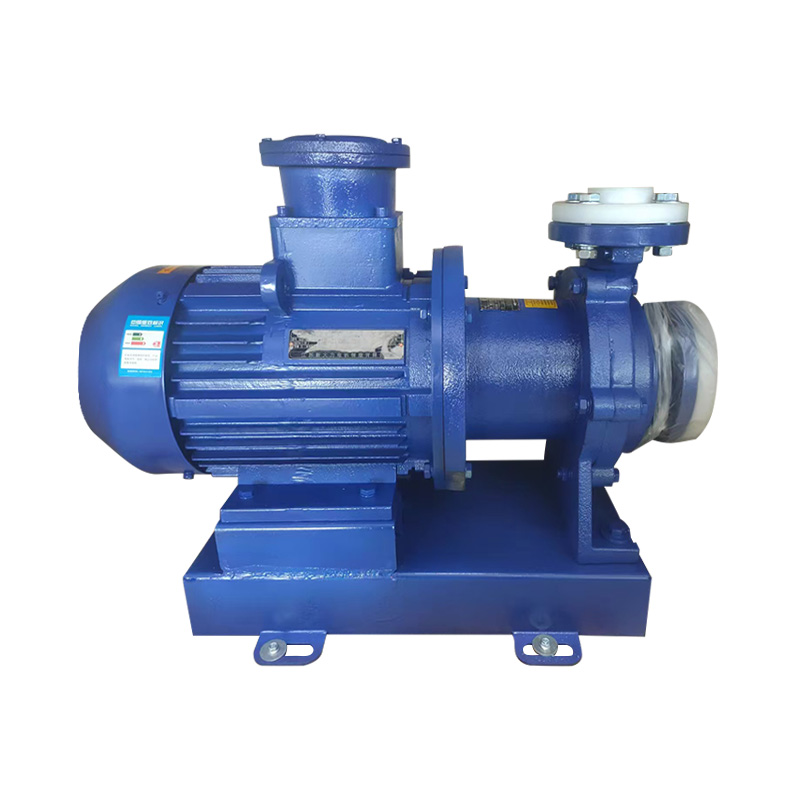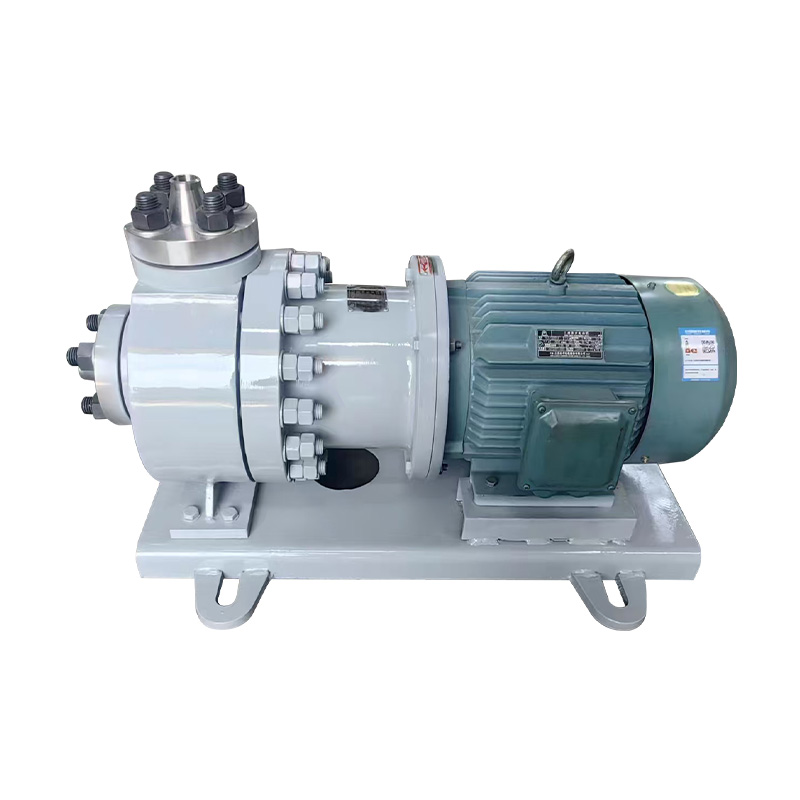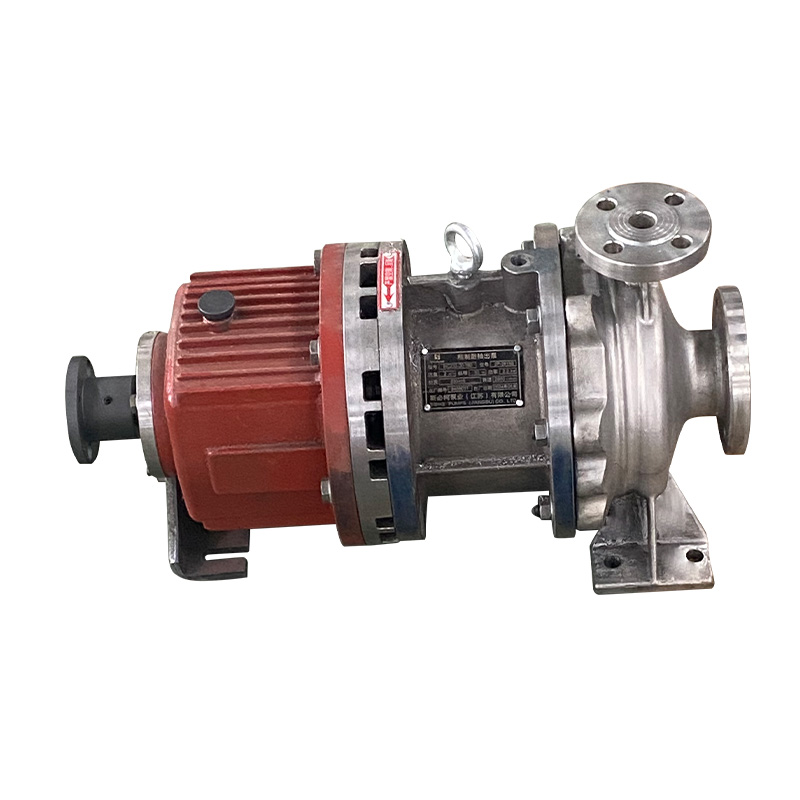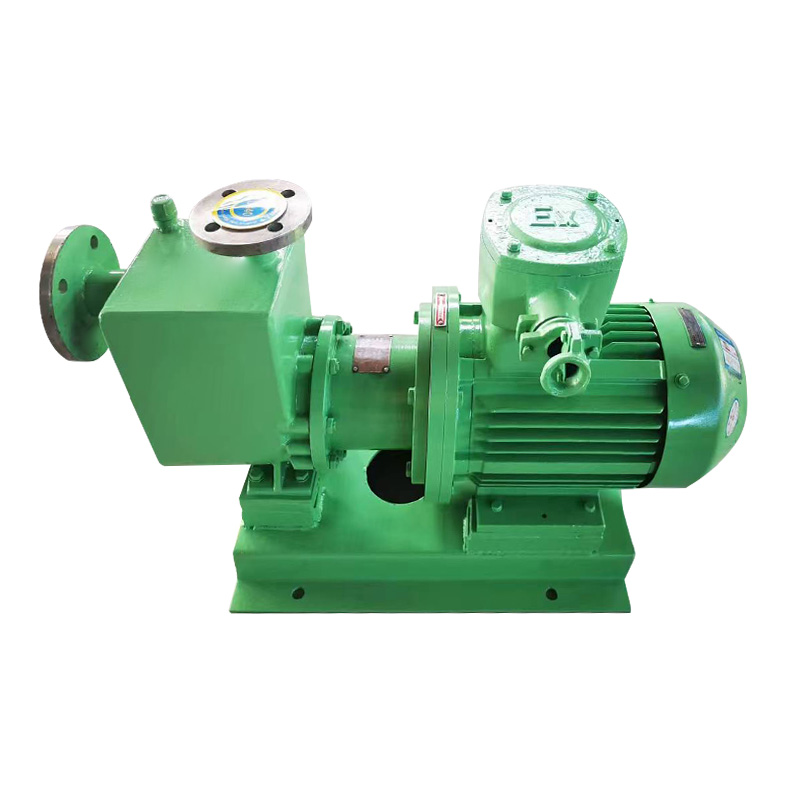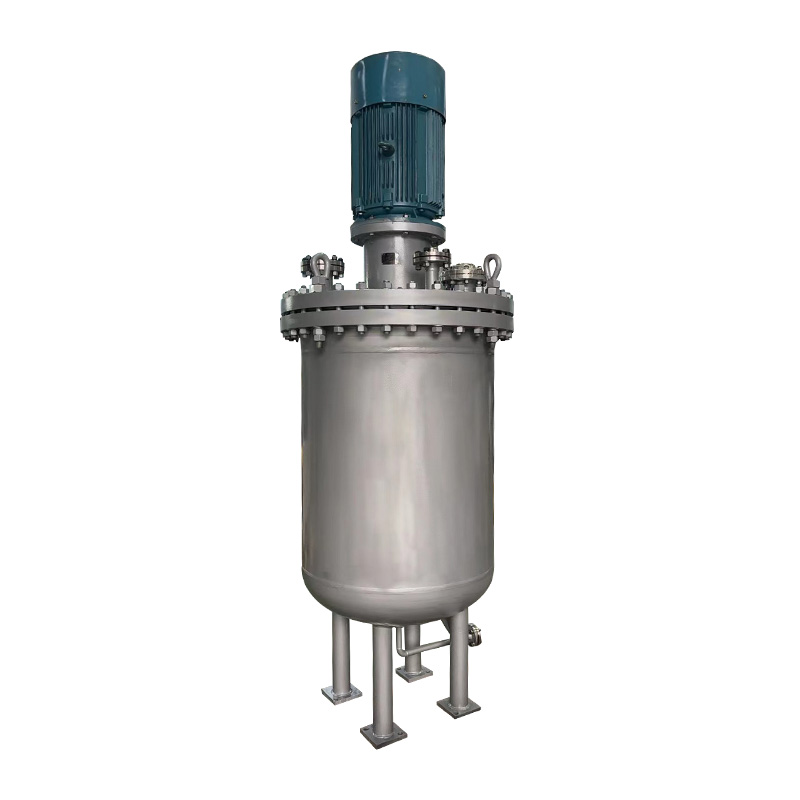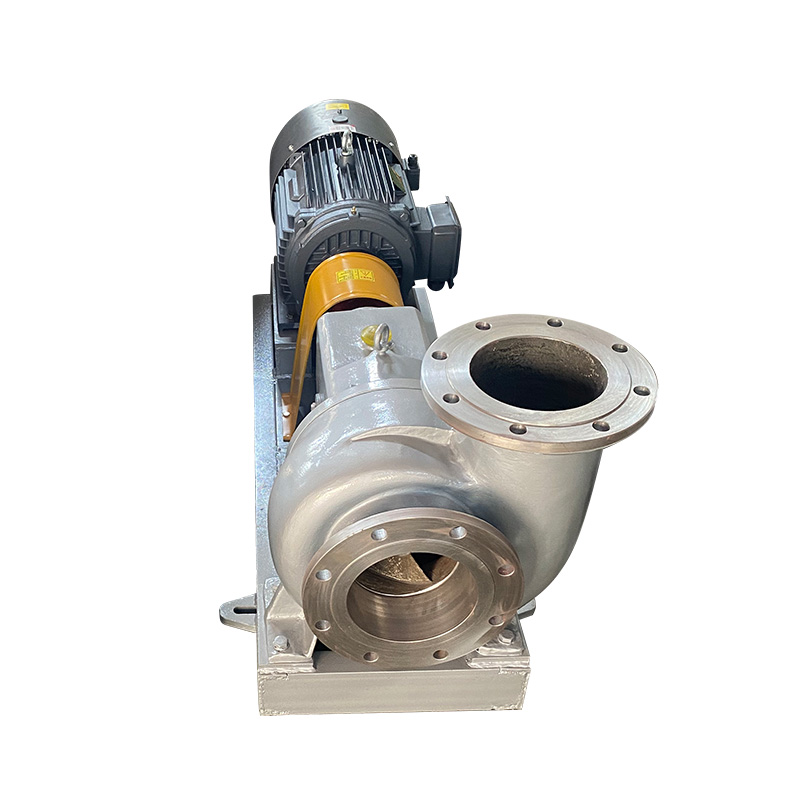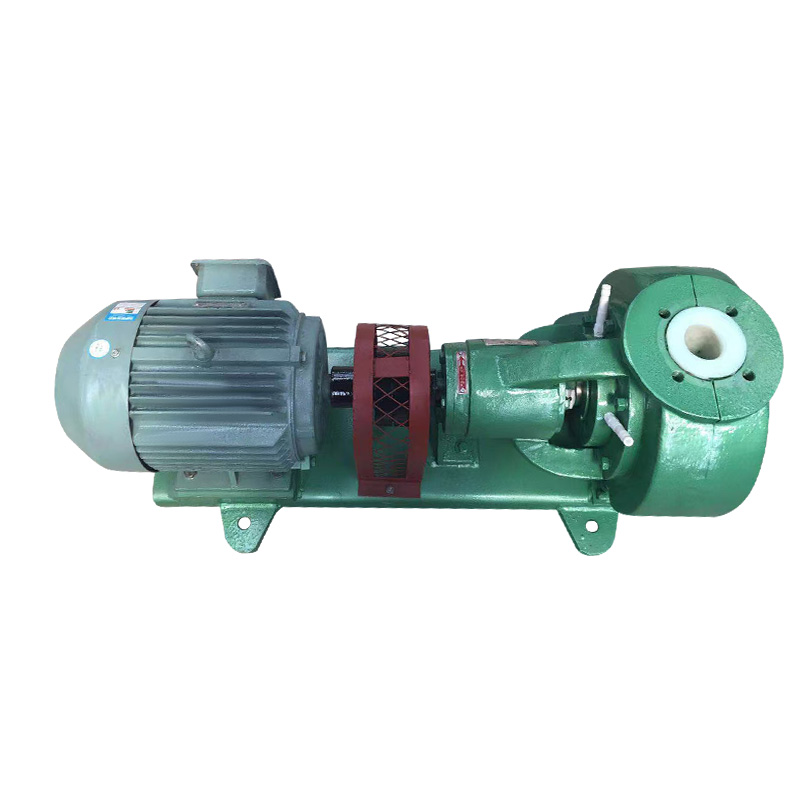Working Principle and Features of Magnetic Pump
A Magnetic Pump is a type of pump that drives fluid flow through magnetic coupling, eliminating the need for traditional shaft seals and completely avoiding leakage issues. Typically, a magnetic pump consists of inner and outer rotors, a pump casing, and magnetic materials. The inner rotor is connected to the pump shaft, while the outer rotor rotates synchronously through magnetic coupling, enabling fluid movement within the pump body. Its leak-free design makes it widely used in high-safety and environmentally sensitive environments, such as chemical processes and high-temperature fluid transport.
The Magnetic Pump maintains high reliability while providing operational safety. Its hook-and-loop-like magnetic coupling allows easy maintenance, enabling technicians to inspect or replace components without halting operations, ensuring continuous, efficient fluid transport in demanding industrial applications.
High Temperature Magnetic Pump
High temperature magnetic pumps are capable of stable operation under extreme heat, suitable for transporting hot oil, thermal oil, and high-temperature chemical solutions. The pump casing and rotors are usually made of heat-resistant materials to ensure magnetic coupling remains effective at elevated temperatures. The design balances heat resistance with stable flow and pressure, ensuring efficient operation even in high-temperature conditions and safeguarding production continuity and safety.
Corrosion Resistant Magnetic Pump
Corrosion resistant magnetic pumps are constructed using high-grade anti-corrosive materials, such as PTFE, Hastelloy, or stainless steel, to handle strong acids, bases, and other corrosive fluids. Internal linings extend service life while ensuring fluid purity and operational safety. These pumps are widely used in chemical storage, acid and alkali processing, and seawater transport, making them indispensable in chemical, pharmaceutical, and environmental protection industries.
Applications in the Chemical Industry
Magnetic pumps are widely used in the chemical industry to transport toxic, flammable, or corrosive liquids. Their leak-free feature reduces environmental contamination risks and improves operator safety. In chemical processes, magnetic pumps handle high-temperature, volatile, or corrosive media, ensuring stable and reliable production. Compact design and easy maintenance make them ideal for space-constrained production facilities.
Chemical Industry Magnetic Pump
Chemical industry magnetic pumps are highly reliable, capable of long-term continuous operation without frequent maintenance. They come in various materials and models to suit different process requirements, maintaining pump sealing and stable flow in acid-base reactions or high-temperature steam transport, thus ensuring safe chemical production.
Compact Magnetic Drive Pump
Compact magnetic drive pumps are designed to be small yet highly efficient, ideal for areas requiring high performance in limited space. They offer strong transport capability and corrosion resistance, with simple installation and maintenance. This enables quick deployment in process upgrades and reduces labor and maintenance costs.
Industrial Magnetic Pump Advantages and Selection Guide
Industrial magnetic pumps are widely used across sectors, from petrochemicals to food and pharmaceuticals to electronics. Their core advantages include leak-free design, compact structure, convenient maintenance, and durable reliability. Magnetic coupling replaces traditional shaft seals, making them essential for transporting hazardous or valuable fluids.
Industrial Magnetic Pump Applications
Industrial magnetic pumps are not only used for chemical fluids but also for high-temperature oils, thermal media, and corrosive solutions. They prevent leakage hazards to equipment and the environment, and selecting the appropriate pump type and material ensures specific industrial process needs are met.
Parameters to Consider When Selecting a Magnetic Pump
When selecting a magnetic pump, one should consider fluid properties, temperature, pressure, flow rate, and pump material. High-temperature fluids require heat-resistant casing and high-performance magnetic materials; corrosive media require anti-corrosion materials; high-flow processes require proper pump diameter and type. Magnetic coupling strength and pump structure design are also critical to ensure stable long-term operation and reduce maintenance costs.
Frequently Asked Questions
Maintenance schedules for magnetic pumps generally depend on operating environment, fluid properties, and pump materials, usually ranging from six months to a year for a full inspection. For high-temperature or corrosive fluids, inspection intervals should be shortened, and worn or aging components should be replaced promptly. Magnetic pumps can continuously operate in high-temperature and corrosive environments but still require regular checks of magnetic coupling and pump casing to ensure long-term reliability. Compact magnetic pumps are suitable for space-limited production areas, offering simple installation and maintenance while maintaining high-performance fluid transport.
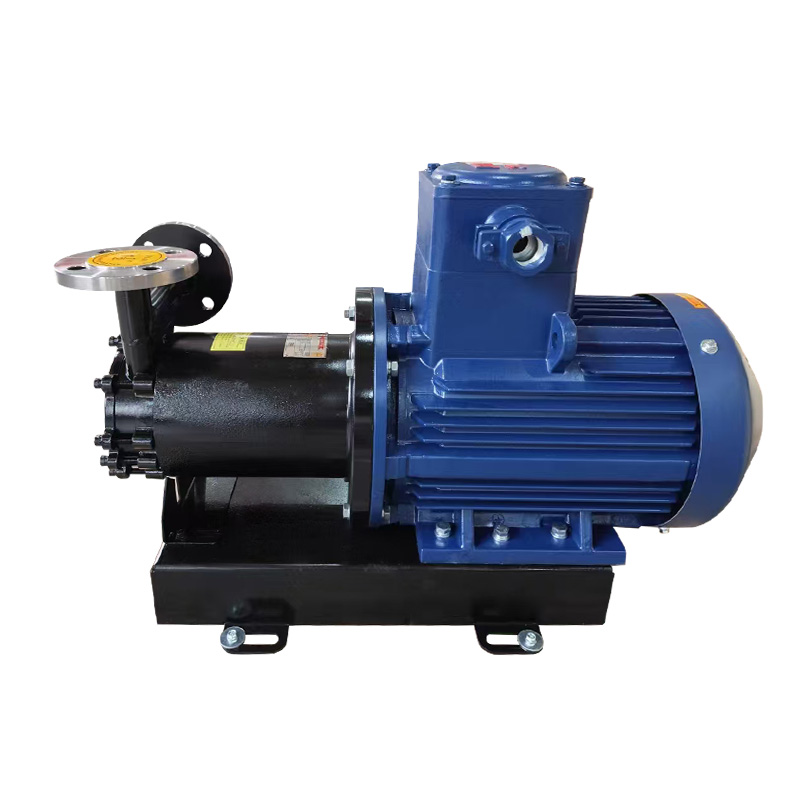



 English
English русский
русский Español
Español